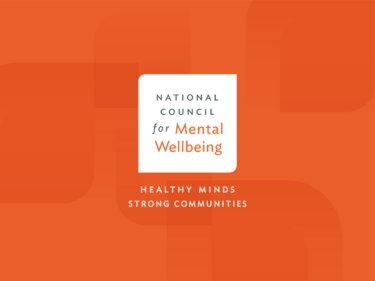Workforce Solutions Jam: Payment Reform
The Promise and Potential of Value Based Purchasing for a Thriving Workforce
Payment is a primary lever for addressing equity gaps in behavioral health salaries, building pathways for the future workforce and creating reimbursement that supports an expanded workforce. Incentives that focus on outcomes rather than volume can improve job satisfaction and retention by enabling providers to spend more time with patients, engage in comprehensive care coordination and participate in integrated care teams.
Payment reform can ensure more stable and predictable funding streams, allowing organizations to invest in workforce development, training and innovative care approaches, ultimately leading to a more effective and thriving behavioral health workforce.
Key highlights of the August Jam include:
- What value-based purchasing really means and its potential to improve outcomes and reduce administrative burden.
- The role of emerging payment and delivery reforms in addressing workforce challenges, aligning quality measurement, integrating behavioral health with primary care and supporting whole person health.
- How states have typically structured alternative payment models (APMs) for behavioral health services, and considerations for new APMs for behavioral health care coordination.
- How managed care organizations have worked with behavioral health provider organizations to structure APMs and how behavioral health providers have responded to these efforts.
- Value-based payment initiatives implemented by a health insurance company in Pennsylvania that focused on the success of providers, stabilization of the workforce and improved outcomes.
- How behavioral health providers in Minnesota are building and implementing value-based delivery and payment strategies through the Integrated Health Partnership, the state’s only dedicated behavioral health Accountable Care Organization.
Speaker Information
Lori Fertall
Lori Fertall is the director of value-based programs at Community Care Behavioral Health, a nonprofit behavioral health managed care organization that is part of the Insurance Services Division of UPMC headquartered in Pittsburgh. In this position, she is responsible for the creation, implementation, evaluation and reporting of value-based purchasing arrangements with behavioral health providers. Previously, as Community Care’s director of quality management, she implemented quality management programs and performance improvement projects across the company and its provider networks. She regularly presents to a variety of local and national audiences at conferences on topics such as value-based purchasing, quality improvement and payer/provider relationships. Prior to joining Community Care, Fertall worked at various health and human service agencies in clinical and program development roles. She earned a Master of Business Administration from Point Park University, a bachelor’s degree in social work and women’s studies from West Virginia University and a Lean Six-Sigma Green Belt from UPMC.
John O’Brien
John O’Brien has more than 30 years of experience in behavioral health systems design, financing and implementation. He has worked with Medicaid, mental health and substance abuse authorities in numerous states to develop federal Medicaid waivers, Medicaid state plan amendments and federal grant applications. A former senior consultant at the Technical Assistance Collaborative, O’Brien directed the organization’s work on substance use disorders (SUDs), with an emphasis on helping states increase access to services, integrate SUD treatment and primary care and reduce unnecessary costs by using Medicaid and other sources to support effective systems. He was the subject matter expert for several states in their efforts to implement systems of care for children and families with serious mental health conditions and on community integration strategies for adults with serious mental illness.
O’Brien has worked for the U.S. Department of Health and Human Services in leadership roles with the Centers for Medicare and Medicaid Services (CMS) and the Substance Abuse and Mental Health Services Administration (SAMHSA). At CMS, he led the Innovation Accelerator Program for Substance Use Disorder and Primary and Mental Health Integration and coordinated the agency’s efforts to develop guidance regarding parity for Medicaid and the Children’s Health Insurance Program. O’Brien played a significant role in the implementation of Medicaid expansion under the Affordable Care Act and in developing the Home- and Community-based Services regulations. At SAMHSA, he was senior advisor to the administrator on health care reform.
Jin Lee (Jinny) Palen
Jin Lee (Jinny) Palen is the executive director of the Minnesota Association of Community Mental Health Programs (MACMHP) and Convergence Integrated Care, a clinically integrated network of community mental health centers across Minnesota. Her background includes public health research and analysis, community engagement, legislative advocacy, government relations, public policy and community leadership. Prior to her role with MACMHP, Palen was on the public policy staff of the Minnesota Association of Community Health Centers. Palen stays active in her local neighborhood community clinic and Asian American and Pacific Islander community. Palen worked for the Minnesota Department of Health in the Health Economics Program, Tobacco Prevention and Control and Legislative Affairs Office. Palen was a legislative policy fellow of the Partners for the Americas Policy Exchange Fellowship in 2014. She has a Bachelor of Arts in biology from the College of Saint Benedict and a Master of Public Health from the University of Minnesota.
Samantha Repka
Samantha Repka is a research associate at the Duke-Margolis Institute for Health Policy, where she focuses on issues related to care delivery and payment reform, behavioral health (including substance use disorder) and other public health issues. Previously, Repka worked at the New York City Department of Health and Mental Hygiene, where she served as a director of public policy. Prior to her time in NYC, she was a senior manager at AcademyHealth and a Teach for America corps member. She holds a Master of Science in public health and a Bachelor of Science in public health from the University of North Carolina at Chapel Hill.
The Workforce Solutions Jam is a monthly webinar to build national momentum and encourage collaboration through the Center for Workforce Solutions, a partnership between the National Council for Mental Wellbeing, The College for Behavioral Health Leadership and Health Management Associates.

